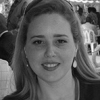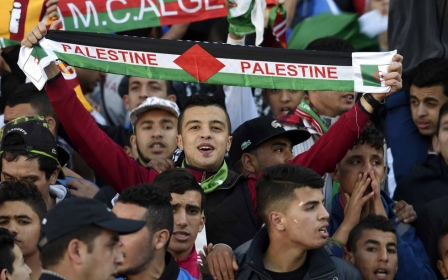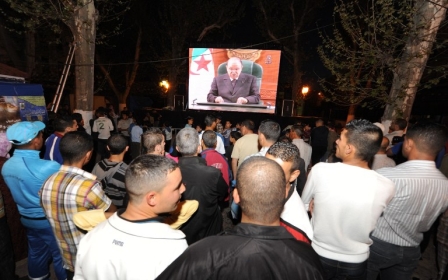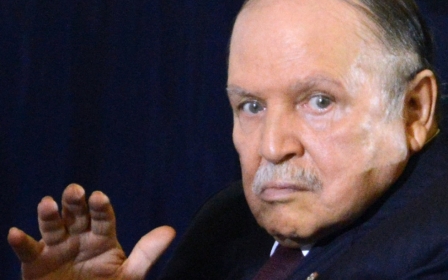When Algeria's sleeping president attempts to awaken
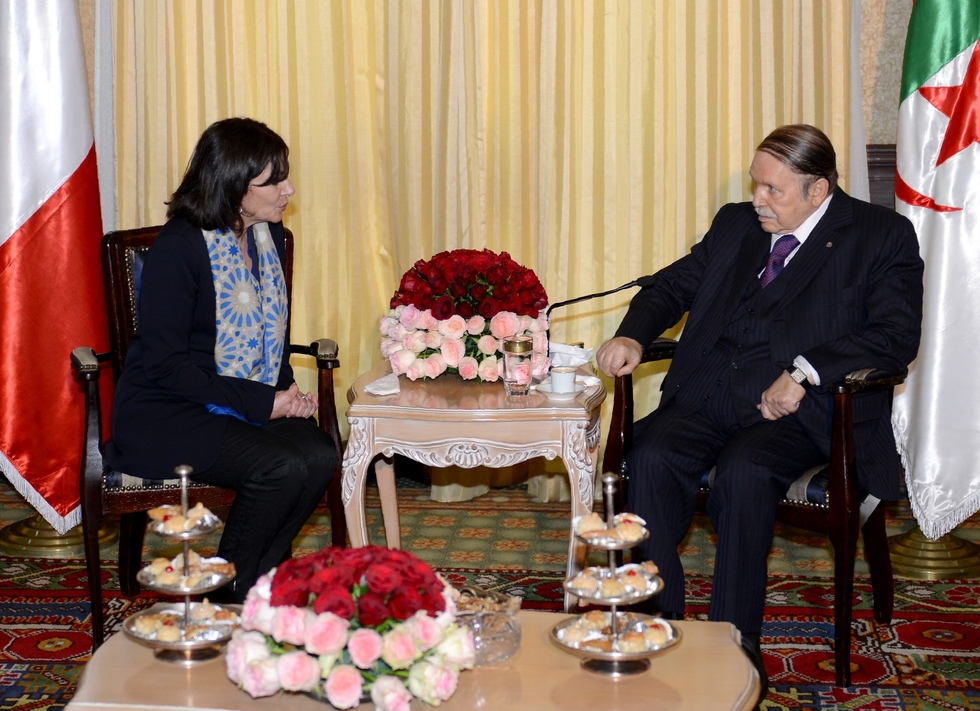
Amid the overall apathy that has characterised Algerian President Abdelaziz Boutefika's controversial fourth term in office came a decision to breathe new life into a clearly moribund administration.
The decision, a classic in Algerian politics, has been to introduce a raft of amendments to the constitution. While in the early days of Algerian nation-building writing new constitutions was standard practice with every new president, Bouteflika has opted for the more subtle approach of merely changing the body of text.
In 2008, he was credited for his first nuanced change when he ran for a third term in office despite being limited by law to only two consecutive mandates.
At the peak of his popularity and with high oil prices lending him support, public opinion applauded the decision and the 2008 election was once again comfortably won by Bouteflika. A massive overhaul of the country's infrastructure was launched and on one of many visits to a building site the ageing president was cheered to appeals to run for yet another term.
He famously said that it was time for his generation to pass the baton and that five more years at the helm was not on the cards. However, after a debilitating stroke that left him absent from office for three months, he nevertheless announced, via a read-out statement on television, that he would be running for a fourth term.
The constitution had therefore been so far violated three times. Twice when he ran for president despite the two-term limit clause and a third time after ill health left him unable to work for over 40 days in direct contradiction to clause 88 of the 1996 constitution.
As Prime Minister Abdelmalek Sellal announced an ambitious set of changes, the question remains of what legal weight these changes have, since they can liberally be by-passed at any given time?
Tamazight an 'official' language
One of the much vaunted amendments concerns making Tamazight an official language of the country.
The change is a PR exercise designed to appease the Kabylia region, notoriously hostile to Algiers rule and which has always viewed the recognition of Tamazight as central to its identity struggle. While celebrated by the normally critical independent press, this is a costly PR exercise that will be difficult to implement.
Tamazight is the root language of the various other Berber or Amazigh languages of the country of which there are four major ones - Kabyle, Chaoui, Mozabite and Tergui - with others in various different pockets of the country. Tamazight is the equivalent of Latin for French or Italian and is understood or spoken by no one. A great body of research will have to be devoted to first comprehend, learn and then teach it. And yet as an official language it should be featured on application forms, road signs etc. which so far no one, including Amazigh-speaking populations can understand.
Another change relates to financing political parties as well as the process of applying for funds. Distribution of monies will be determined by the party's representation in parliament and an independent body will overlook expenses in a bid to avoid financial fraud as well as vote-rigging.
In a bid to appear relevant, opposition parties have criticised these changes, dismissing them as merely cosmetic, lacking any real substance.
But perhaps one of the most controversial amendments, which was initially barely noted in Algeria, concerns dual nationals.
The new clause insists that all those looking to reach high office can only do so when loyal to the Algerian state and no other.
Ban on dual nationality
Considering the significant Algerian community residing in France, this particular point has seen Algeria's diaspora, in particular in Europe, strongly condemn the changes. Many have accused the Algerian government of depriving the country of a much-needed competent workforce.
The critique could be legitimate if this community was indeed looking to get involved in the nation-building process of the country. In stark contrast to neighbouring Morocco's Western-based community for instance, very few notable dual nationals if any have dedicated any efforts to Algeria, preferring instead to instruct from the sidelines without looking to invest either manpower or funds locally.
While scores of tourist resorts and festivals in the prosperous coastal towns of Morocco are thriving thanks to investments from Moroccans abroad, no similar projects have been initiated in Algeria.
Even in the cultural sector, where Algerian performers and writers have enjoyed considerable clout in recent years, few have attempted to forge long-term programmes in the country.
Odd concerts or exhibitions here and there have been set up, yet none have come with long-term commitments; commitments that would see a new generation of young Algerians benefit from this foreign-based knowledge.
For those who have engaged in Algeria, the country is essentially viewed as a lucrative market and nothing else. Ultimately this approach is no different to foreign investors with no filial link to the nation.
These dual-nationals have more often than not behaved like all those looking to capitalise on the country's vast wealth and potential while refusing to share in the risky setting-up phase of project construction.
At the first hurdle, like their foreign counterparts, they pack up and leave, often emptying Algerian banks of much-needed foreign currency.
Algeria's dual nationals appear to want their cake and eat it while complaining when officialdom seeks to gather the crumbs.
France's Algerian community
An important protest was organised by France's Algerian community outside the embassy in Paris earlier this month in relation to this law.
This would be the second such gathering in almost as many years, with the first one organised to protest Bouteflika's fourth mandate.
This community, important in numbers, appears tragically absent from the French political scene. Unable or unwilling to get involved in France's active political movements even when new laws are voted in that directly affect French Algerians, such as the withdrawal of French citizenship for anyone suspected of involvement in terrorist activity.
This law has been described in France as creating two levels of citizenships with "French-French" surpassing those from ethnic backgrounds. And yet no one Algerian organisation rose up, like it has in Algeria, against it.
This is a community that becomes therefore active in its condemnation of a country it does not reside in nor invest in, but feels it is legitimate to condemn regulations that will barely affect it.
Many in Algeria have argued that if these dual nationals could devote as much energy working towards Algeria's benefit as they do criticising it, then they too would earn the right to be critical of this amendment.
So far, however, this law is designed to sever increasingly close ties with a French administration tacitly accused of nurturing unhealthy links with Algerian officials in high office.
It has been the source of much criticism in Algeria that many of the children of ministers and army officers are residing in Europe, in particular in France, and in many cases obtain French citizenship.
Often replacing their parents in office further down the line, there is a genuine fear that an entire class of officials will be at risk of being French in the near future. This is a painful irony considering Algeria's bloody and painful war in expelling French colonialists following 132 years of brutal occupation.
As with many changes to the constitution, few if any of these amendments will lead to significant changes on the ground to everyday life for Algerians. Until that happens, this will be just another attempt at showing that the Algerian "shop" is still open for business. What it's really selling is a question that, so far, remains unanswered.
- Hafsa Kara-Mustapha is a journalist, political analyst and commentator with a special focus on the Middle East and Africa. She has worked for the FT group and Reuters and her work has been published in the Middle East magazine, Jane's Foreign report and a host of international publications. A regular pundit on TV and radio, Hafsa can regularly be seen on RT and Press TV.
The views expressed in this article belong to the author and do not necessarily reflect the editorial policy of Middle East Eye.
Photos: A handout picture released by the official Algeria Press Service (APS) shows Algerian President Abdelaziz Bouteflika (R) meeting with French Mayor of Paris Anne Hidalgo on 8 February, 2016, in Algiers (AFP/HO/APS).
Middle East Eye propose une couverture et une analyse indépendantes et incomparables du Moyen-Orient, de l’Afrique du Nord et d’autres régions du monde. Pour en savoir plus sur la reprise de ce contenu et les frais qui s’appliquent, veuillez remplir ce formulaire [en anglais]. Pour en savoir plus sur MEE, cliquez ici [en anglais].


